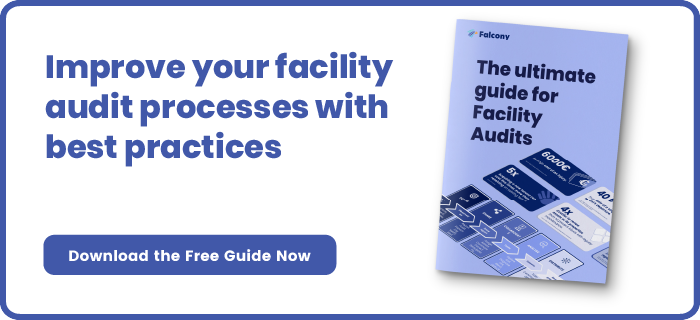Writing reports is an everyday job for millions of businesses. Writing reports and contributing to an efficient information flow is crucial. But can you do it faster? It's possible. Every Facility and Maintenance manager or an HSSEQ manager should consider these seven points to save time and money at the workplace.
1. Choose the Right Channel
Everything starts from choosing the right channel for incoming reports. Receiving reports through several means of communication only result in a chaos, where the manager has to collect and combine data from phone calls, emails or even handwritten pieces of paper. One standard channel, which in most cases is email, is simpler and more reactive. The employees know how and where to communicate their findings and managers have a smaller risk of information loss. Written online reports also eliminate bad handwriting.
2. Structure the Data
Once the channel is set, the next step is to have all the information well-organised. Email programs have features for creating separate folders and commands to route incoming emails to the right folders. The information is organised and easy to find and forward. Remember to name the folders logically and so that the content is tied to a time and place. Depending on the number of incoming emails, consider having a distinct folder for each subgroup.
3. Use Templates
Even though the channel is well selected and structured, the report content might be a chaos in itself. Therefore, templates are immensely useful. Templates simplify employees' reporting work yet managers know exactly where to look for specific details in each report. Templates come in hand also when managers want to further communicate findings to executives, supervisors, authorities etc.
4. Know Who’s Reporting to Who and When
Make sure that every single employee in the company knows to whom they are reporting to. This applies to all levels of an organisation. It’s really a waste of time to have people send reports to wrong audiences and expect reactions. Facility and Maintenance and HSSEQ Managers should consider adding a reminder in their calendars about report completion and actually reserve time to compile the right information for the top management. Also, make sure everyone in line knows how often they’re expected to generate reports.
5. Avoid Unnecessary Blocks
Occasionally, all levels of management might receive reports where some information is unclear or a detail is missing. In order to avoid unnecessary phone calls or emails, management should be granted an access right to view the original data. This also stands as an excellent reason to structure and name the report folders clearly.
6. Define Responsibilities for Emergencies
Urgent incidents and emergencies require immediate actions. For such cases, “fast track” reporting is essential. Most of the time, a phone call is the best option. But even if an urgent report is delivered by phone, the content has to be documented sooner rather than later. This requires a plan. Who is responsible for writing a report after the call? Who are the people to be informed immediately about the incident? Eventually, the report should be found in the same folder with similar cases.
7. Automate Data Gathering
Most companies already rely on software in facility and maintenance management and on the HSSEQ sector. However, it’s still people who manage the software. And when there are people, there are human errors. Standardised procedures diminish the risks. The next step is to make the field data-gathering more efficient by standardising and structuring and ultimately automating the whole process. Automated data gathering eradicates human errors. This step also allows you to start implementing VUCA into your operational strategy. Read more about the term in VUCA - The Beginning.





